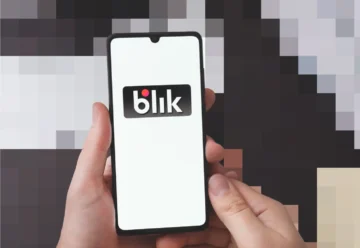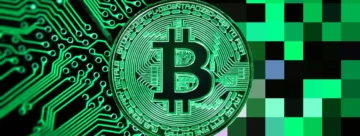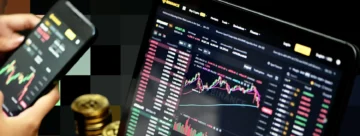How Muslim FinTech Is Paving the Way for Global Financial Inclusion

As the world embraces the efficiency and convenience of digital transactions, traditional monetary systems are growing outdated and in some regions, more extremely than in others. Despite comprising over a quarter of the world’s population, the Muslim community remains largely unbanked due to factors like limited financial education, non-alignment of banks with Islamic ideals, and limited access to financial services.
However, the rise of Muslim FinTech is changing the narrative, leveraging cutting-edge financial technologies to empower Muslims worldwide with ethical and inclusive financial solutions.
Financial Exclusion in the Muslim World

As previously mentioned, the Muslim community makes up over a quarter of the world’s population, yet it remains largely unbanked. This gap can be attributed to several factors.
- Lack of Financial Education. Insufficient knowledge of financial concepts and personal finance hinders Muslims from making informed financial decisions. Economic literacy rates in most Muslim-majority countries are low, from 1% to 30%.
- Banks Do Not Align with the Ideals of Islam. Shariah law prohibits many practices of today’s fundamental financial methodologies, such as charging interest or excessive/uncertain trading.
- Limited Access to Financial Services. According to the World Bank, around 1.7 billion people are still unbanked, and most reside in Muslim-majority countries.
- Gender Disparities. Islamic Bank estimates that the majority of Muslim women throughout the world do not have access to essential financial services.
- Digital Divide. Rapid digital growth in the West has left many Muslim countries far behind in FinTech and blockchain technologies.
- Political and Economic Instability. Political turbulence, armed conflicts, and civil unrest have eroded the financial infrastructure in some Muslim nations, causing significant developmental losses and delays, particularly in the last decade.
- Language and Literacy Barriers. These barriers hinder ordinary people in the Islamic world from fully understanding financial policies, services, and products, leading to a lack of trust in financial markets.
Unraveling the Scope of Muslim FinTech: Key Players and Future Possibilities

With Islamic banking services, a new era of inclusion has arrived, paving the way for innovative ways to conduct financial transactions and banking practices in compliance with Shariah law. The Islamic Development Bank (IDB), for example, has adopted digital financial technologies to enhance inclusion and promote financial development in its 57 member countries. Some of the institution’s agendas include:
- creating programs to enhance inclusion;
- partnering with financial startups and institutions;
- digitalizing finance in IDB member states, which are predominantly Muslim majority;
- promoting investment in sustainable development projects like renewable energy;
- organizing and hosting innovative competitions and hackathons to encourage growth;
- sponsoring positive changes in economic policies in member states.
There is also a new app, Yoosr, a financial platform and a trailblazer in the Muslim FinTech space. Yoosr advocates for a credit-free lifestyle, prompting users to attain responsible financial performance and empowering them to achieve financial stability.
It is among the first platforms to provide users with investment opportunities, ethical solutions to financial problems, and banking services that align with the principles of Islamic finance. It sets an example by allowing both non-Muslims and Muslims to utilize its services, further promoting the notion that financial inclusion is possible for all.
Blockchain’s Potential in Muslim FinTech

Following the success of cryptocurrencies and digital finance, there has been a considerable surge in the use of blockchain technology in Muslim countries, especially in the Middle East and North Africa.
Many investors have taken note of these countries for the innovation and development of new blockchain startups present there. However, it is imperative to consider Islamic ethical, moral, and religious values when tapping into the potential of this vast and promising target segment.
Blockchain’s transparency and traceability align with the Islamic finance viewpoint, which emphasizes ethical and moral conduct. Due to their flexibility and adaptability, blockchain can be easily tailored to comply with Shariah Law. With this technology, it is possible to design smart contracts to enforce Islamic principles in deals and prevent scams, frauds, or unethical practices.
The inclusive design of blockchain will further encourage ordinary citizens to participate in the continuous development of financial technology. Blockchain technology includes the convenience of cross-border transactions, more and better entrepreneurial opportunities (like the development of dApps and DeFi initiatives), swift exchange of digital assets, and lower transaction fees, encouraging Muslims to join the global financial marketplace.
HAQQ, the first Shariah-compliant blockchain powered by Islamic Coin, is a good example of a network compatible with Islamic morals and principles. Designed to be universally accessible and adhering to Islamic tenets like interest avoidance and commitment to charity, it empowers the world’s Muslim community and users beyond it with ethics-first, modern financial tools.
Ascendance of Muslim FinTech Platforms

The rise of Muslim FinTech, exemplified by platforms like Islamic Coin, represents a lasting solution for an underserved Muslim population. These platforms empower Muslims worldwide by driving participation while adhering to Islamic principles.
Trends indicate that the vast untapped economic potential of the Islamic world will soon unlock additional financial gains, from venture capitals and financial institutions to Muslim community-run blockchain networks that benefit all.
The hype surrounding Islamic finance is present for a reason, and taking it into account will be a critical step for all financial players in the coming years. The rise of new solutions will enrich the financial landscape with new, ethical, and inclusive services.










